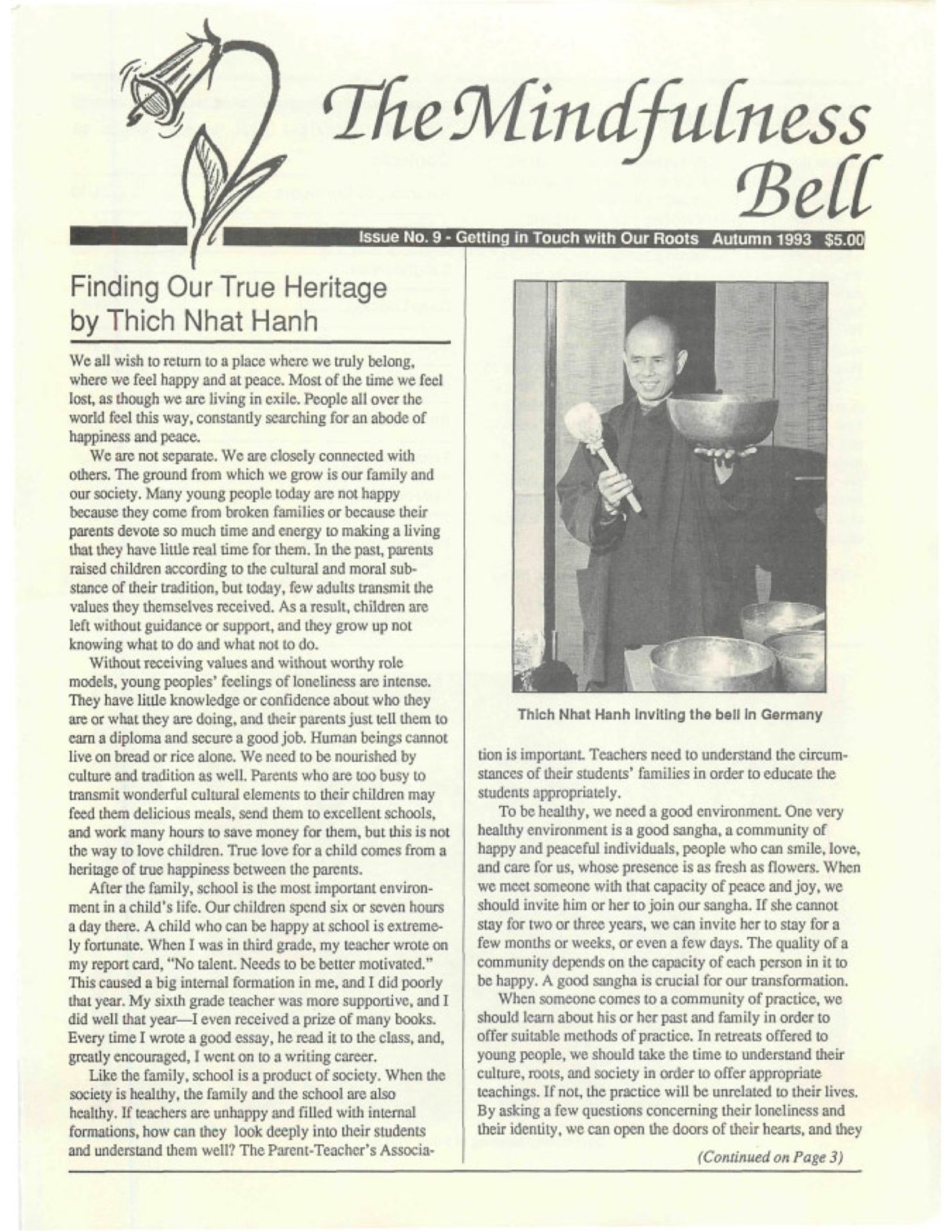By Alan Cutter
Last November, Arnie Kotler, and Therese Fitzgerald, and Claude Thomas came to share a Day of Mindfulness with a group of Vietnam veteran ministers. We could all sit, but walking meditation was difficult for a few. One of our group lost his legs in Vietnam; I injured a hip and knee during an incident and cannot walk slowly and deliberately without a cane. I mentioned to Therese that during the walking meditation, as I sat on the porch and watched,
By Alan Cutter
Last November, Arnie Kotler, and Therese Fitzgerald, and Claude Thomas came to share a Day of Mindfulness with a group of Vietnam veteran ministers. We could all sit, but walking meditation was difficult for a few. One of our group lost his legs in Vietnam; I injured a hip and knee during an incident and cannot walk slowly and deliberately without a cane. I mentioned to Therese that during the walking meditation, as I sat on the porch and watched, I had felt left out and separated from the group; half in jest, I said that what I needed was some form of "staggering meditation." She replied, "It's up to you to invent it."
That day I had left my wooden cane in a corner of my room at the retreat center. For years I have kept it hidden, having learned how to compensate for and disguise my painful problem with walking. That "stick" was a reminder of things I wanted to forget. I did not want to remember "Cripple Corner" in Danang, an intersection near a Vietnamese hospital where maimed Vietnamese soldiers, surrounded by canes, crutches, and makeshift wheelchairs, would gather to wait for an American convoy of large trucks to pass, hoping to be able to throw themselves, or be thrown by friends, under the huge tires so that their families could collect some monetary compensation from the U.S. government. Yet I could not forget, a few years ago, watching a parade in Wheeling, West Virginia. I knelt down beside my young son, and my hip went out and I could not get up, and I was one with the soldiers of years before, a "cripple" by the roadside. Shame, disgust, and despair welled up within me; my helplessness found a focus on that hated cane, and in my anger I would not use it.
When I returned to my room later that afternoon, I sat and thought about inventing "staggering meditation." I decided that I would go for a walk, and rather than take my "suck" along as a necessary evil and out of anxiety over falling, I would "invite" my cane to be my helper. "Please come and be my companion," I said. So we set out to walk into the nearby city center. As we made our way along the sidewalks, I tried being aware not only of my breath but of my feet and of the wooden cane in my hand. Many emotions and thoughts came and I greeted both the pleasant ones and the not-so-pleasant ones and invited them to join us in our walk. After a while, I became less aware of these emotions and thoughts and more aware of the ground on which I was walking, the beauty and gentle warmth of the evening, and the people around me. I even became thankful for the companion which supported me.
As I have continued my "staggering meditation" with my companion, I have tried to think deeply about this practice. For so many years, because of my anger, I deprived myself of support that I needed to be fully mobile. When I did seek that support, I was motivated more by a fear of falling than anything else. I have come to an awareness that my companion is a gift that helps connect me not only with the ground, but also with the many others who for a variety of reasons cannot walk easily, but who also stagger. When I am connected with these brothers and sisters, I no longer feel separated or left out. Rather than a reminder of a terrible past, I have uncovered a deep root of present meaning in this "tree" that I hug in my hand.
Alan Cutter is a Presbyterian Minister in Duluth, Minnesota.

